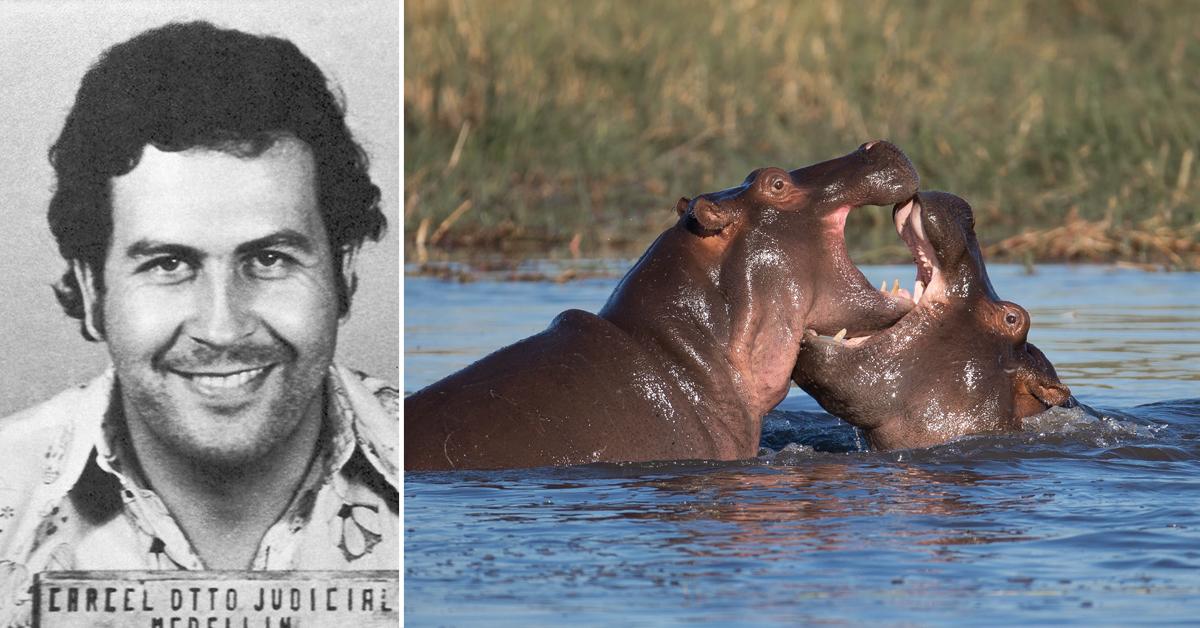Pablo Escobar's 'Cocaine Hippos' Can't Stop Having Sex, Colombian Rivers Overrun With 'Toxic Poop'
June 10 2021, Published 5:27 p.m. ET
Pablo Escobar's "cocaine hippos" are becoming a bit of a nuisance because they keep getting busy.
The semiaquatic mammals once located on the former cocaine lord's Hacienda Nápoles estate are huge tourist attractions -- but there's one problem, they have a high sex drive.

The hippos that weigh a whopping 4,000 pounds each won't stop having sex, and they are polluting the water they share with other animals.
Scientists say Escobar's hippopotamuses have been “getting busy” in the Colombian rivers, leaving behind toxic poop and urine which is poisoning other wildlife.
Despite popular belief, no, these hippos aren't full of cocaine.
The animals are actually survivors of Escobar's Colombian estate.
The country's most notorious drug dealer actually smuggled the hippos from a United States zoo in the 1980s.
The now-deceased Escobar initially snuck in one male and three females, but their offspring quickly took over.
Following the drug lord's death in 1993, the hippos outgrew the pond at his Hacienda Nápoles estate and they began taking up vital real estate in the Magdalena wetlands.

When it comes to the future of the "cocaine hippos," scientist and locals have different views.
VICE highlights the differences between the scientists, who want to slaughter the hippos to save the environment, and the locals, who depend greatly on the money the mammals bring in from tourism.
The hippopotamuses can't help it, but their poop is a real stinker.
According to reports, it creates algae blooms. It also reduces oxygen for fish in the pond.
They also really like to have sex, and their population continues to grow.

“The real problem with hippos is their uncontrollable reproduction, being such a territorial species," government environmental researcher David Echeverri-Lopez told VICE.
Emphasizing the issues with the mammals, Echeverri-Lopez added, “It causes a lot of danger for the fishing population and other people who live in the area."
The government has attempted to manage the hippo population in the past by suggesting castration, but their internal testes are "hard to reach," say scientists.



